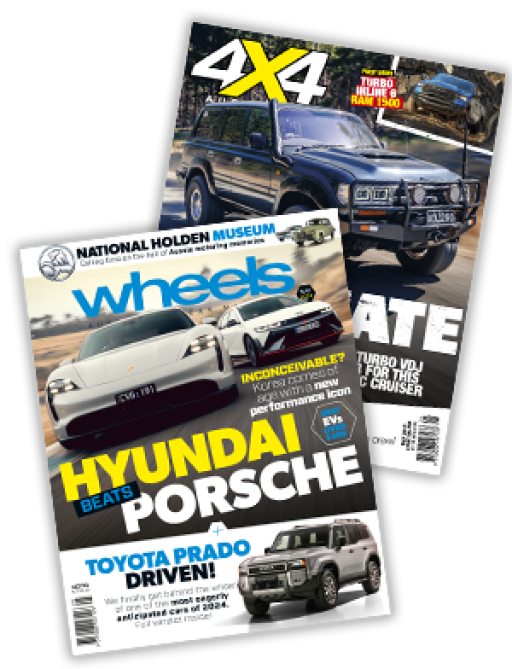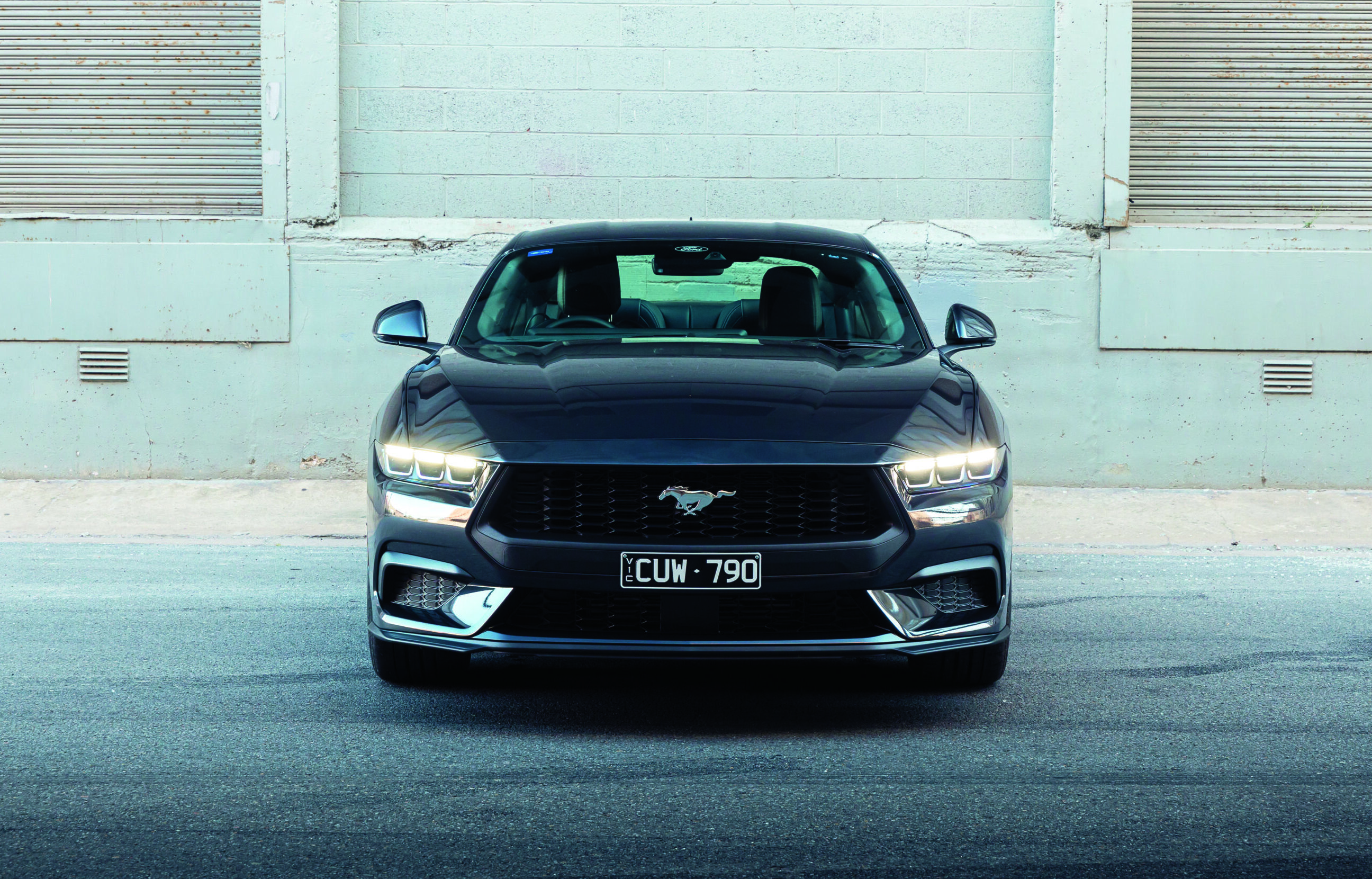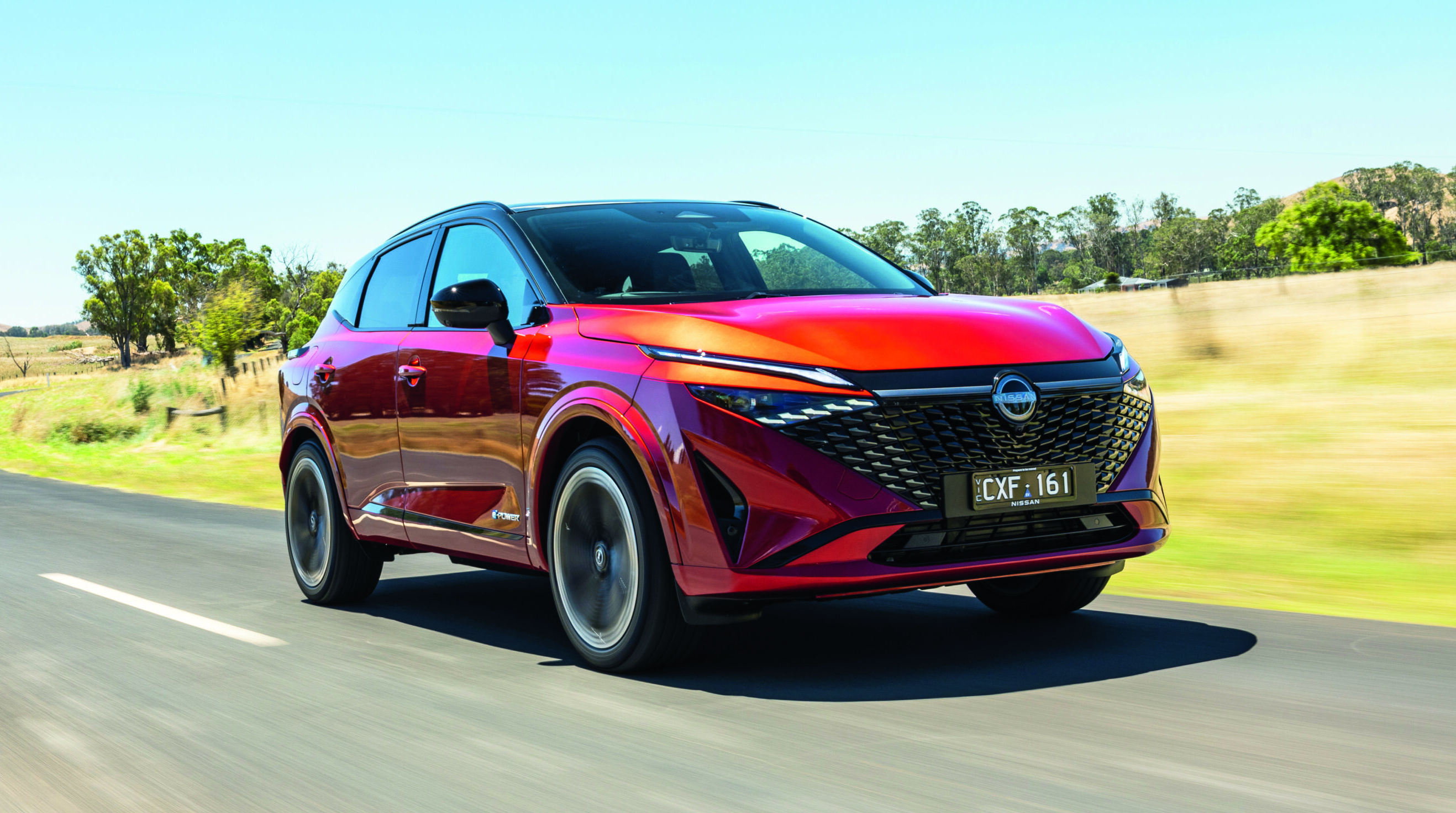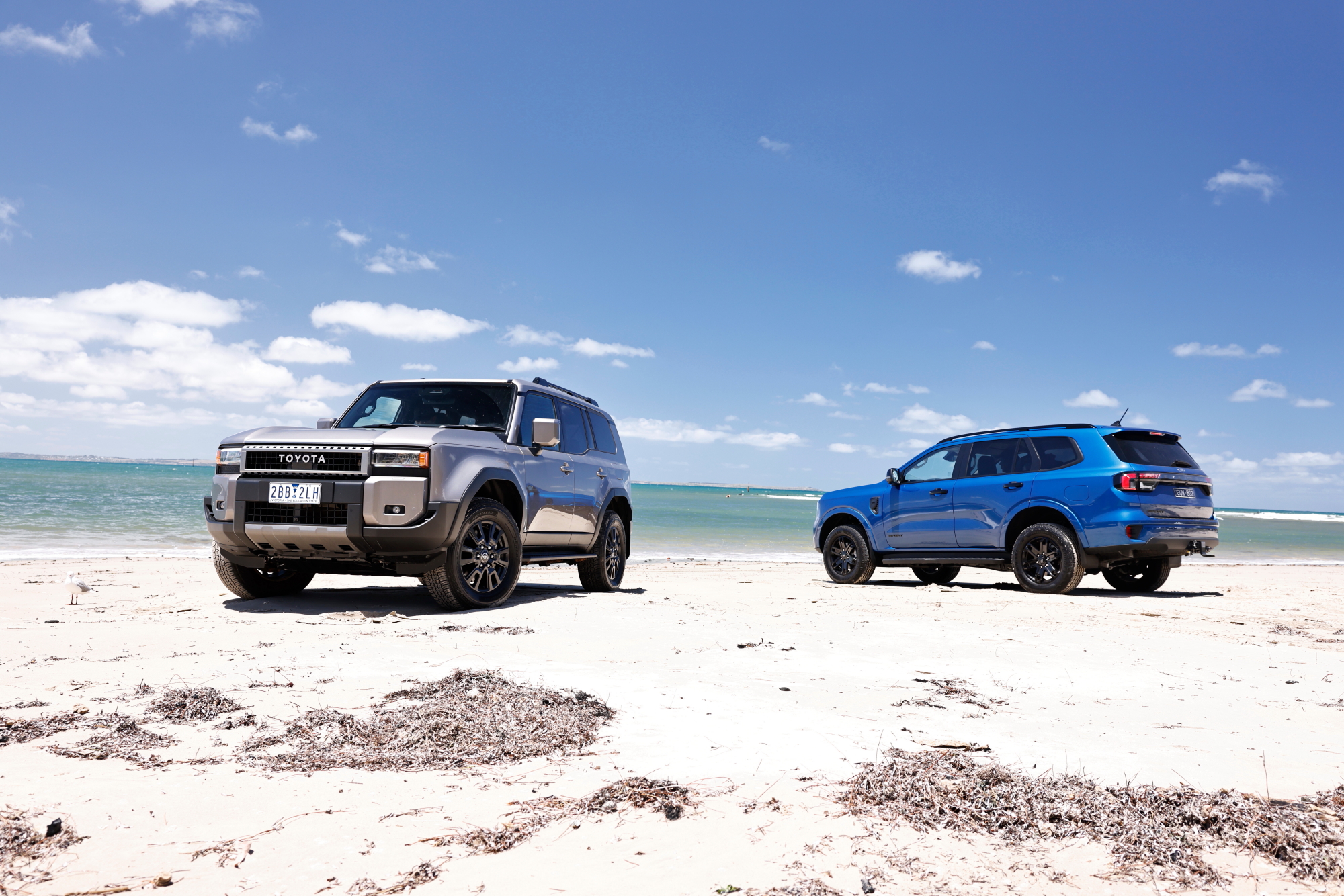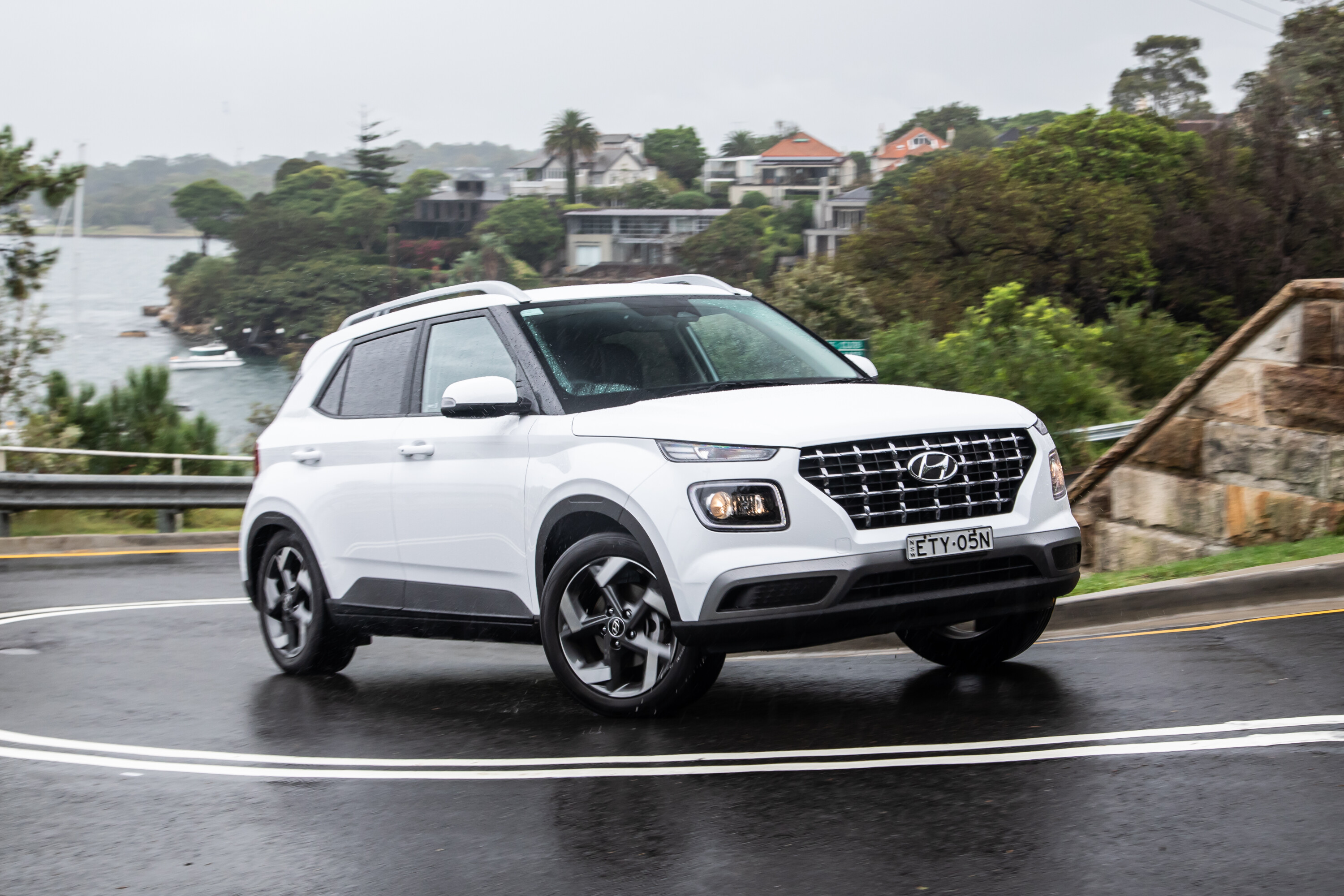
Score breakdown
Things we like
- One of few SUVs to still offer a manual transmission
- 2023 adds range-wide Qi wireless charger and 4.2-inch instrument screen
- Value proposition hard to ignore
Not so much
- No exterior facelift for Aus
- Marginal price rises expected from July
- Featureless second row
The Hyundai Venue is a small city SUV, and Hyundai’s cheapest, at that. It’s a quirky, stylish crossover that is pitched towards affordable, capable, inner-city living.
While the Indian market vehicle received a visual facelift at the beginning of 2023, Australian vehicles have carried over the same familiar face, with added tech updates across the range.
Every Hyundai Venue now has wireless phone charging, rear occupant alert and a 4.2-inch colour instrument display.
The only visual distinction is a down-spec radio aerial antenna, fitted in place of the pre-update Venue’s sleeker shark fin.
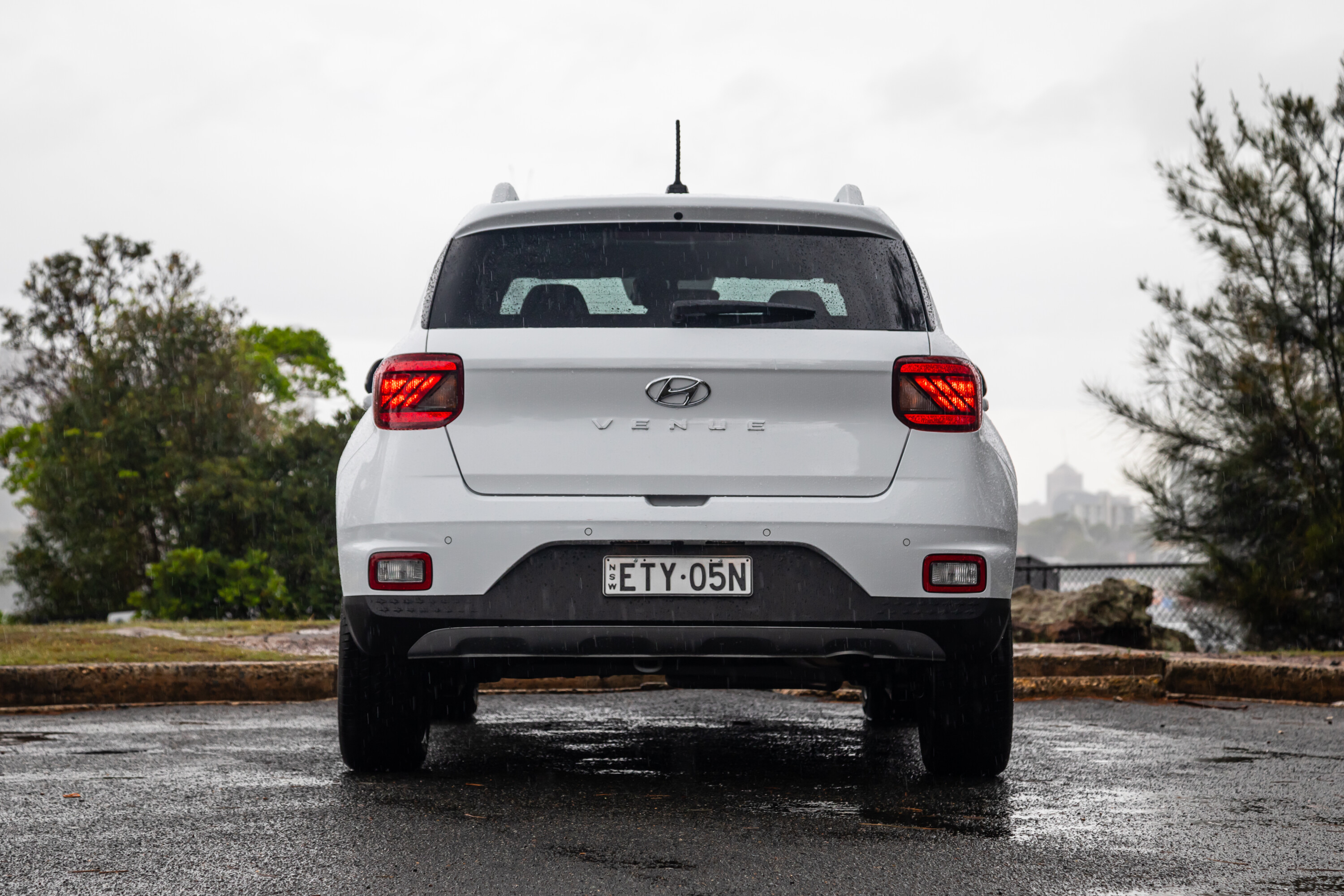
Each Venue variant is all front-wheel drive and powered by a naturally aspirated 1.6-litre four-cylinder petrol engine making 90kW/151Nm.
Automatic and manual transmissions are available on the entry-level Venue, while the whole range delivers frugal fuel economy, and welcome levels of technology including Apple CarPlay and Android Auto, and Hyundai’s new BlueLink connected services.
The Hyundai Venue is covered by a five-year/unlimited-kilometre warranty.
JUMP AHEAD
- Pricing
- What body styles are available for the Hyundai Venue?
- What features are standard in every Hyundai Venue?
- What key features do I get if I spend more?
- How safe is the Hyundai Venue?
- How comfortable and practical is the Hyundai Venue?
- How much boot space does the Hyundai Venue offer?
- I like driving – will I enjoy this car?
- Which Hyundai Venue engine uses the least fuel?
- What is the Hyundai Venue’s towing capacity?
- How long is the warranty and what are the Hyundai Venue’s servicing costs?
- Which version of the Hyundai Venue does Wheels recommend?
- What are the Hyundai Venue’s key rivals?
Pricing
| 2023 Hyundai Venue pricing | |
|---|---|
| Venue manual | $22,000 |
| Venue auto | $24,000 |
| Venue Active auto | $26,250 |
| Venue Elite auto | $28,750 |
| Prices exclude on-road costs | |
What body styles are available for the Hyundai Venue?
It is a five-door SUV only. The Venue drives its front wheels exclusively, regardless of variant. It is classed as a light SUV and is Hyundai’s most affordable offering.
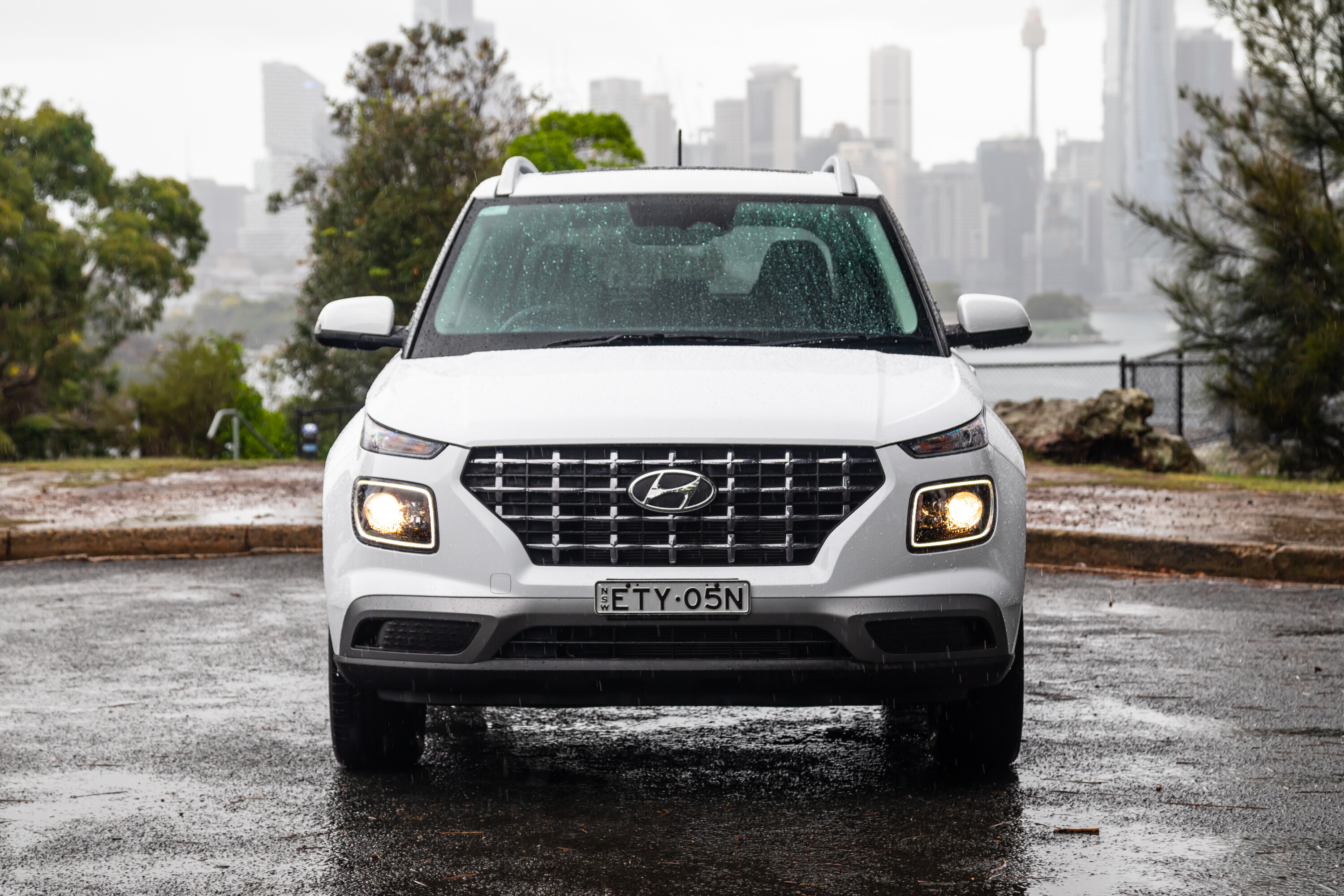
What features are standard in every Hyundai Venue?
The features listed below are standard in the entry-level model and will appear in higher-grade models, unless replaced by more premium equivalent features.
| 2023 Hyundai Venue standard features | |
|---|---|
| 4.2-inch colour instrument display | Remote central locking |
| Qi wireless phone charger | 60:40 split/fold rear seat |
| 8.0-inch touchscreen infotainment system | Cloth upholstery |
| wireless Apple CarPlay and Android Auto | Power windows |
| 1x 12v outlet, 1x USB-A port and 1x USB-C port (front) | Manual air-conditioining |
| Four-speaker stereo | 15-inch alloy wheels |
| Cruise control | space-saver spare tyre |
| Tilt & telescopic adjustable steering wheel | Halogen daytime running lights |
| Tyre pressure monitoring system | Auto halogen projector-style headlights |
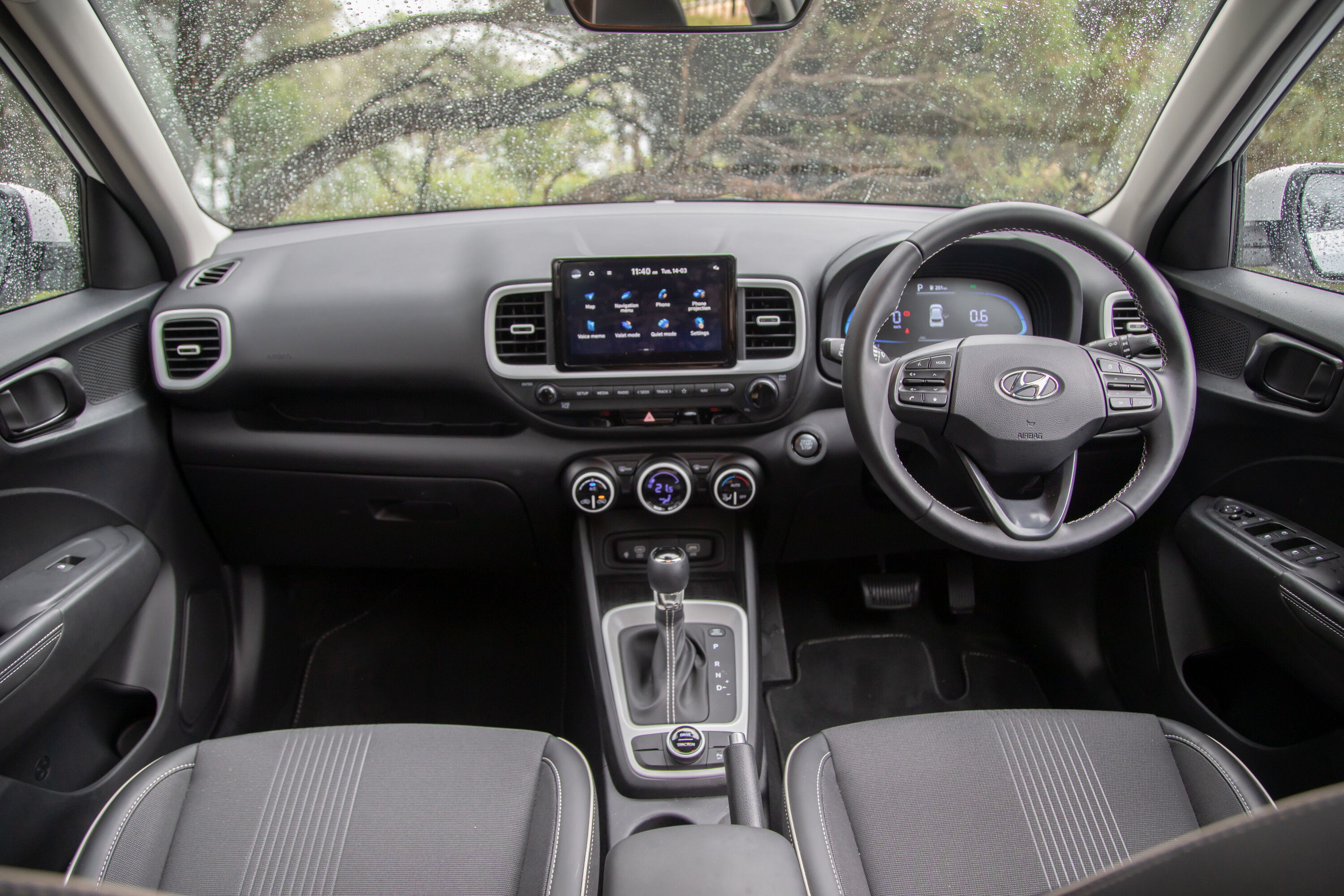
What key features do I get if I spend more?
The base Venue variant has cloth seats, an 8.0-inch touchscreen and 15-inch alloy wheels.
It comes standard with the range-wide 1.6-litre petrol engine with a six-speed manual gearbox and front-wheel drive as standard. At this trim level, you can opt for an automatic transmission for an extra $2000.
For extra features, you could spend more for a Venue Active or Elite, both of which are exclusively fitted with an automatic transmission.
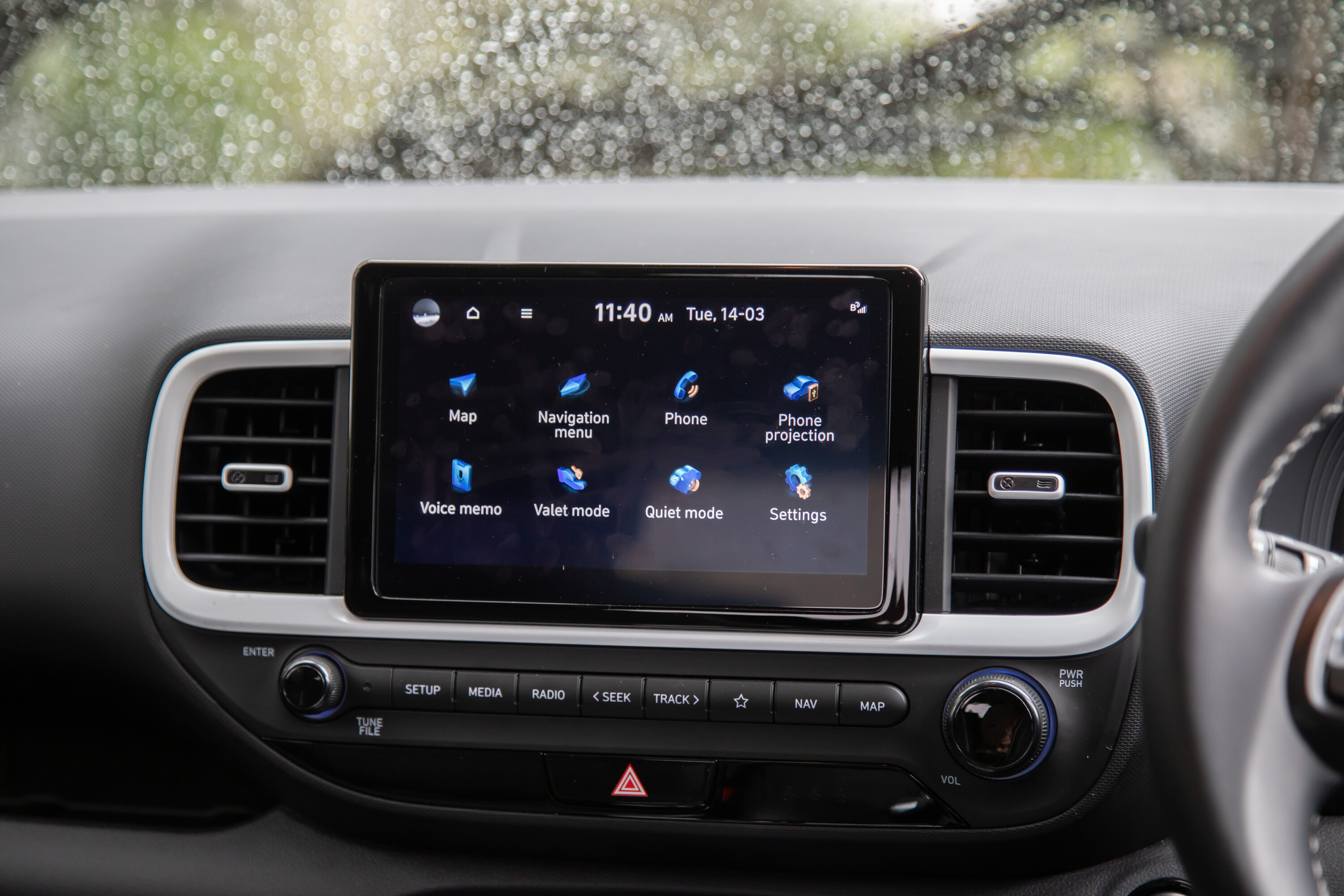
The Active adds a six-speaker stereo, leather-wrapped steering wheel and gear selector, larger 17-inch alloys, LED lighting and more.
A quirk of the Venue is that the entry-level vehicle and mid-range Active both have wireless Apple CarPlay and Android Auto, while the flagship Venue Elite, and its upgraded infotainment unit with added DAB+ digital radio and satellite navigation integration, requires a wired connection for phone screen mirroring.
The Venue Active also brings
| 2023 Hyundai Venue Active features | |
|---|---|
| Six-speaker sound system | 17-inch alloy wheels |
| u2018Premiumu2019 seat bolsters | LED daytime running lights |
| Leather-wrapped steering wheel and shifter | LED position lights |
| Power folding exterior mirrors | Static bending lights |
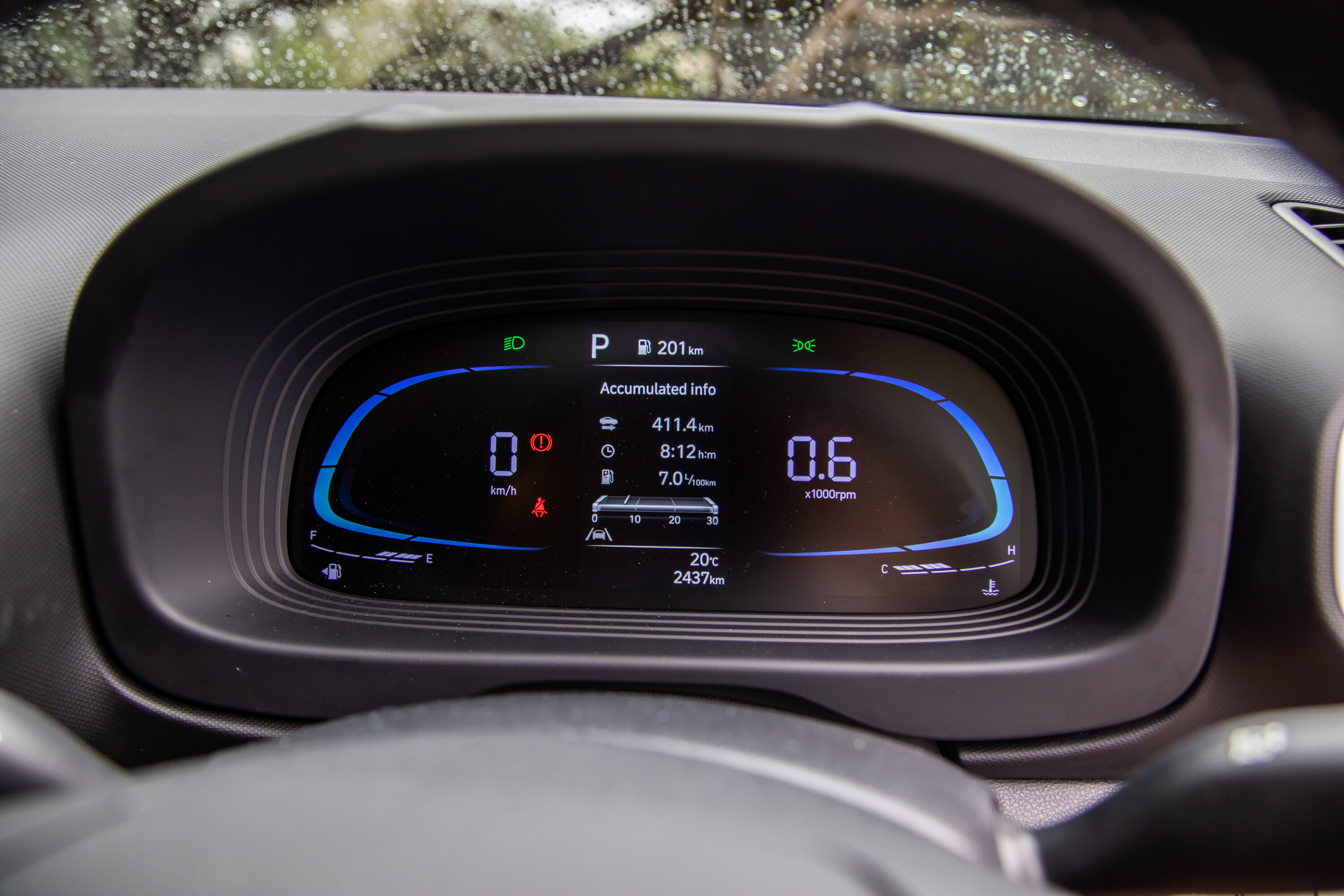
Paying more again for a flagship Venue Elite gets you those features plus:
| 2023 Hyundai Venue Elite features | |
|---|---|
| Hyundai Bluelink, with complimentary five-year subscription | Sounds of Nature ambient noise |
| 2x USB-C ports (rear) | Sunroof (not available with two-tone roof option) |
| Electro-chromatic rearview mirror | Keyless entry and start |
| Satellite navigation | Rear privacy glass |
| Wired Apple CarPlay and Android Auto | Single-zone climate control |
| DAB+ radio | LED rear combination lights |
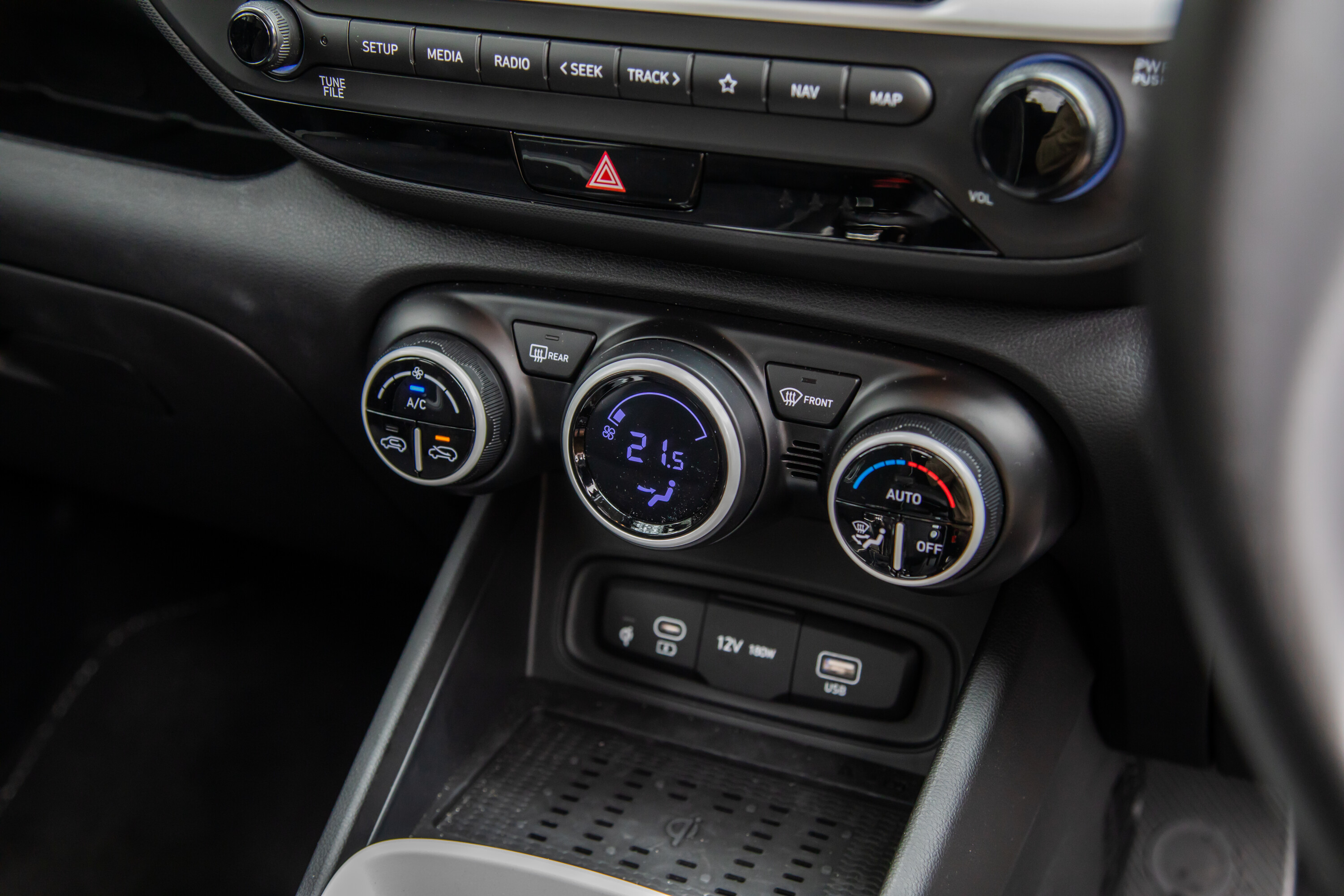
How safe is the Hyundai Venue?
Assessed by The Australasian New Car Assessment Program (ANCAP) in 2019, the Hyundai Venue wears a rating of four out of five stars.
Headline features include a camera-based autonomous emergency braking (AEB) system with city/urban and interurban operation and pedestrian detection, lane-keep assist, rear occupant alert, driver attention warning, leading vehicle departure alert and a reversing camera.
Six airbags are fitted: Two front, two front-side and curtains on each side protecting the heads of front and rear occupants.
There’s also a seatbelt warning for every seat – a simple but valuable feature for those with children old enough to unfasten their belts but young enough not to know better. Automatic high beam assist and mandatory stability control complete the standard safety suite.
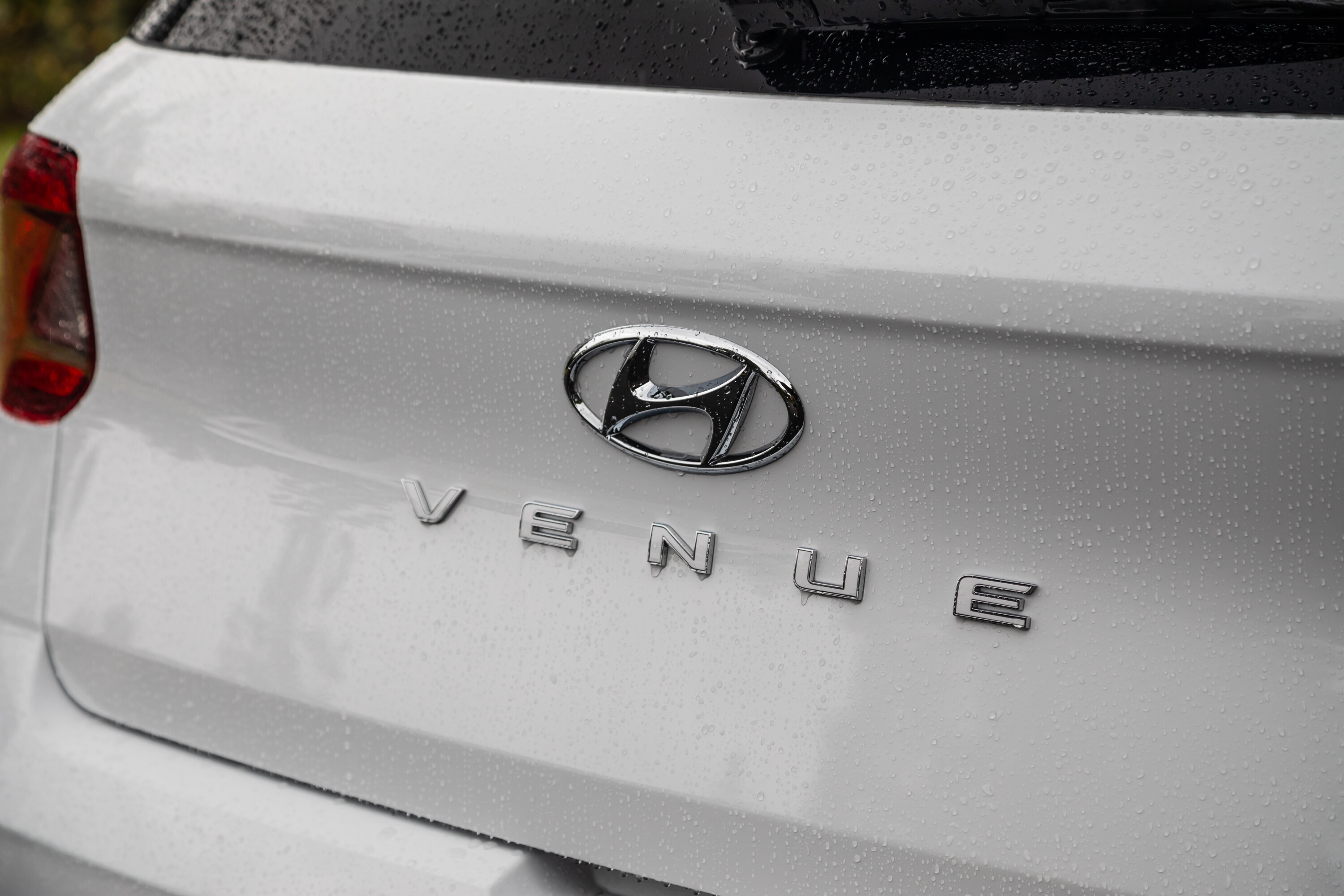
The Venue Active adds rear parking sensors to the mix, while the flagship Elite further introduces blind-spot monitoring and rear cross-traffic alert.
A range-wide four-star ANCAP rating was handed down due to the AEB system failing to adequately prevent a rear-end collision during testing.
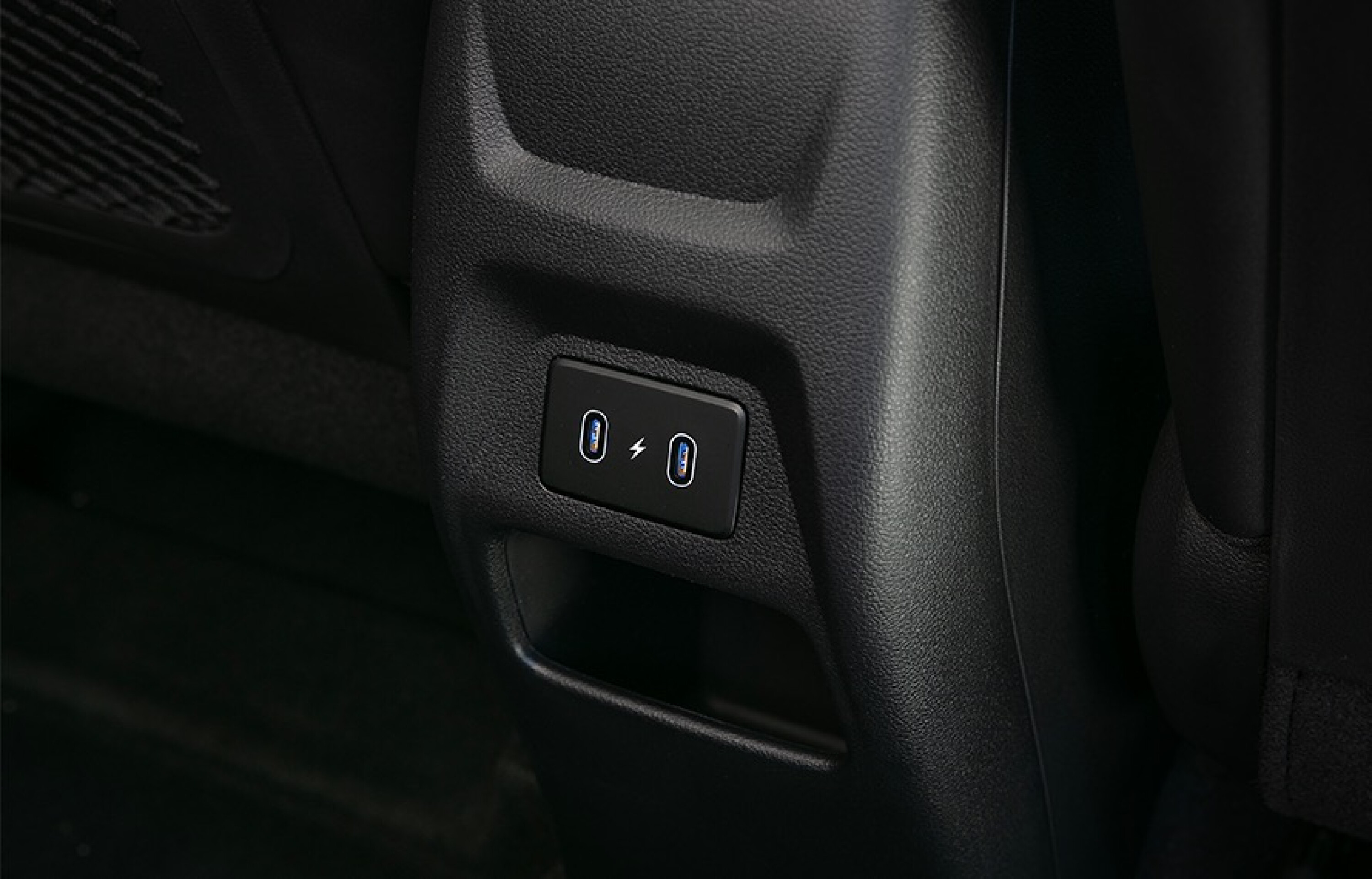
How comfortable and practical is the Hyundai Venue?
Despite its small stature, the Venue delivers a deceptive level of cabin space thanks to its disproportionately long wheelbase.
The steering wheel is adjustable via tilt and reach, and while the Venue won’t knock you out with its interior’s visual impact, the cloth upholstery feels durable and comfy.
Visibility through the upright glasshouse affords a great view of the road and all instruments and controls are laid out neatly.
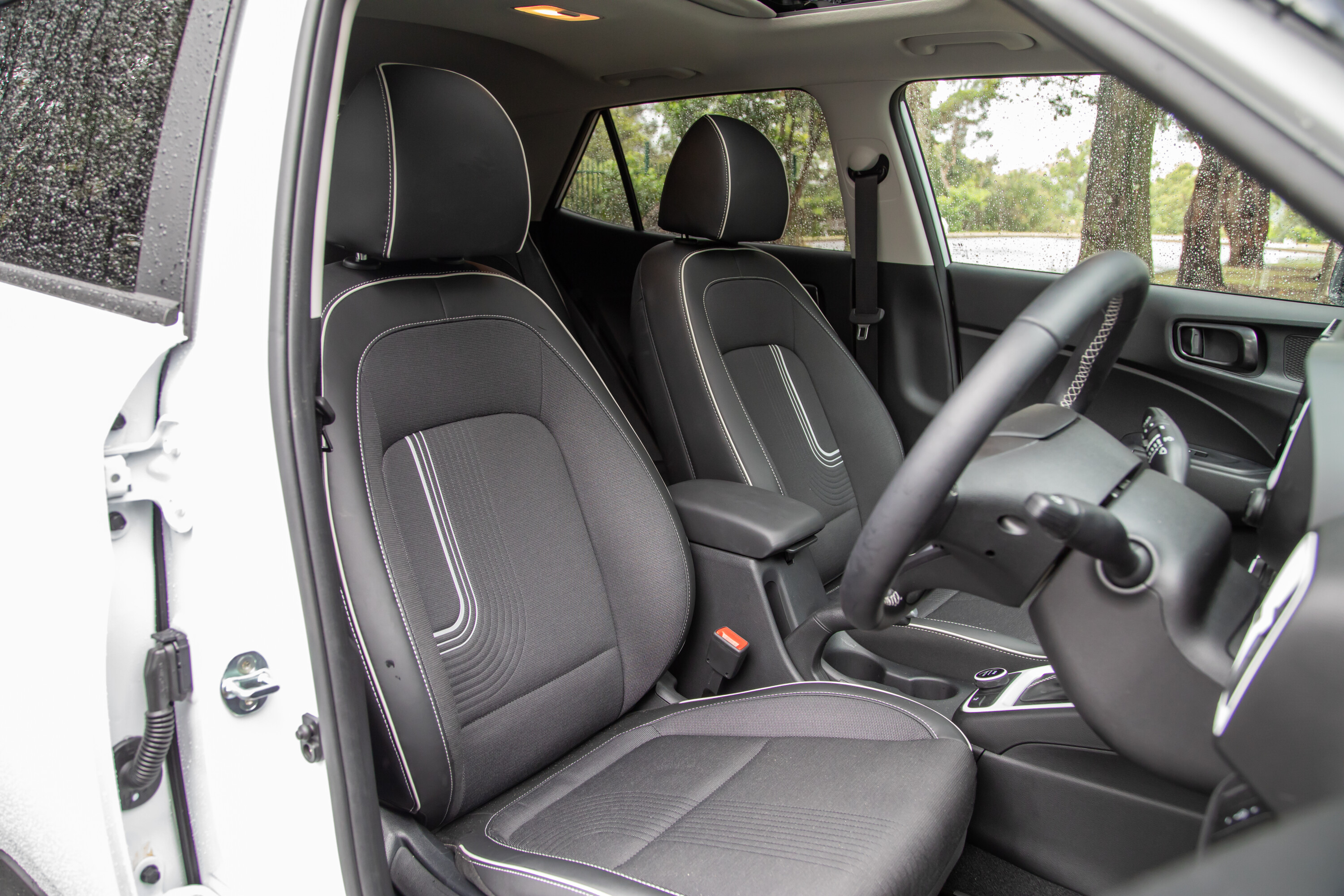
The interior may not carry the visual detail of the exterior, but it all feels solidly built for the price.
Rear seating in the Venue is one of its strongest traits, with most testers having knee room and legroom to spare when seated behind their own driving position.
Seating three adults abreast may be a tall order as it’s not the widest cabin, and the middle seat may feel snug thanks to an elevated transmission tunnel but overall, it’s an agreeably pleasant place to be for short to medium trips.
The chairs are supportive and comfy, but, elsewhere, it’s all a bit barren back here. There is no central fold-down armrest, no cup holders, no rear-facing charging ports, just a bottle pocket in each door and a map pocket behind the front passenger seat.
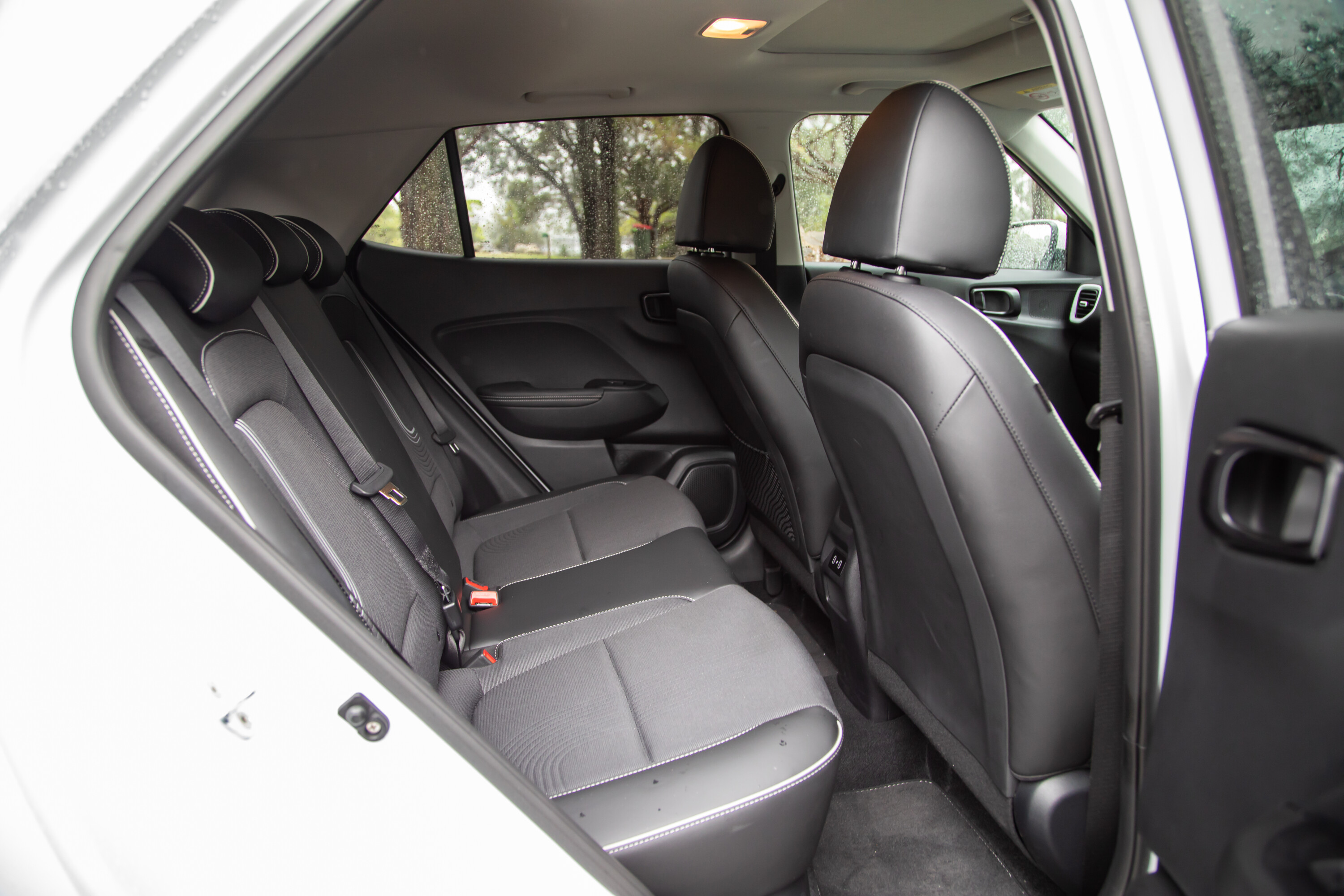
How much boot space does the Hyundai Venue offer?
The Hyundai Venue delivers a competitive (for its class) boot capacity claim of 355 litres, with a moveable false floor that can free up extra depth should you need added stowage space.
You can fold the 60:40 split second-row seatbacks to liberate more space, but Hyundai doesn’t say how much. The space itself offers a wide aperture which, combined with the second row folding almost flat, offers a handy flat floor for ease of loading.
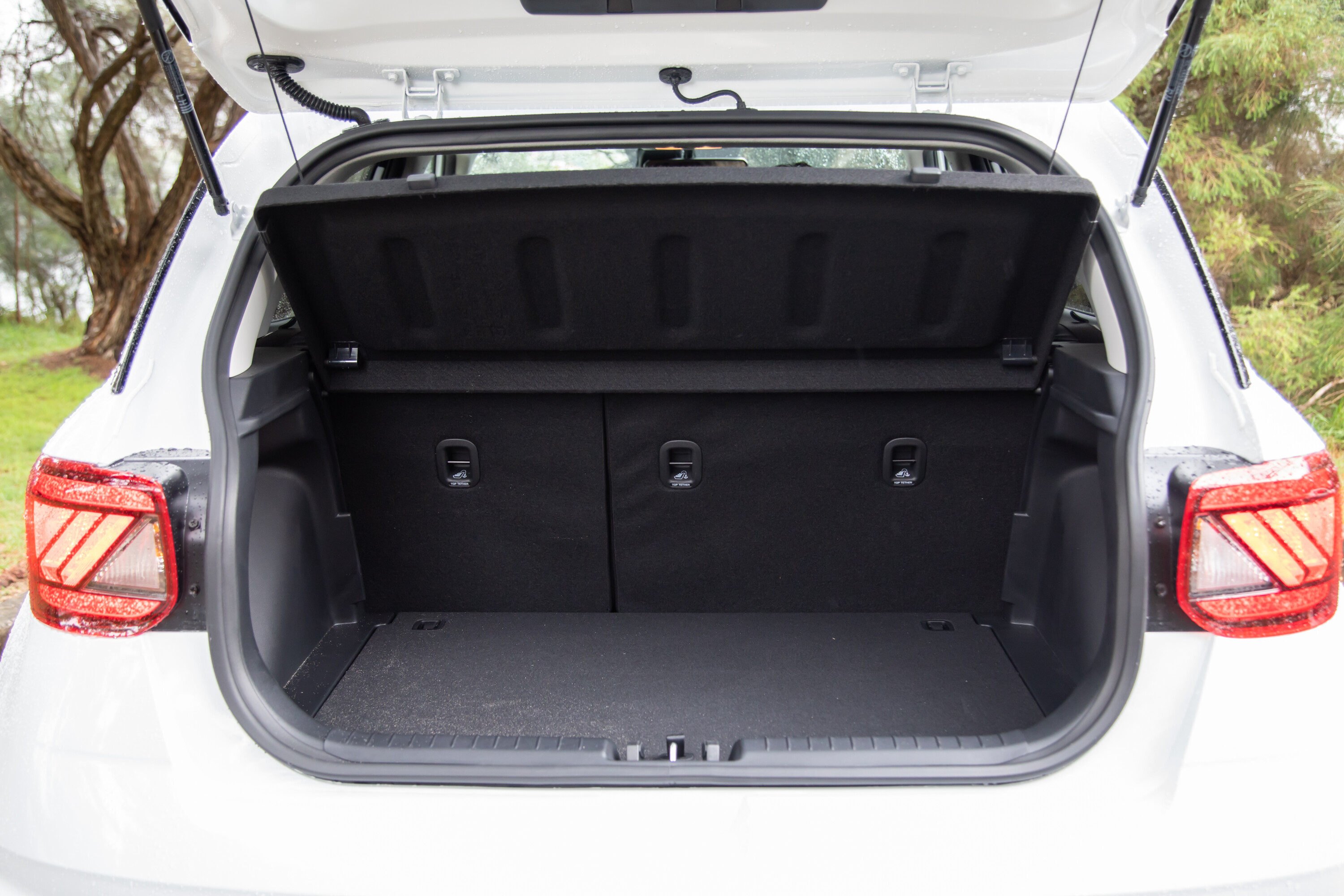
I like driving, will I enjoy this car?
Yes. The Hyundai Venue is a confident inner-city specialist that feels zippy and agile while also being incredibly easy to use.
With modest 90kW/151Nm outputs, well-matched gear spacing from the conventional six-speed automatic gives the Venue deceptive levels of pep in its step. It won’t leave much for dead at the traffic lights, but you won’t be lagging behind traffic, either.
It builds pace linearly, with a tangible swell of mid-range torque as the Venue surfs up to speed.
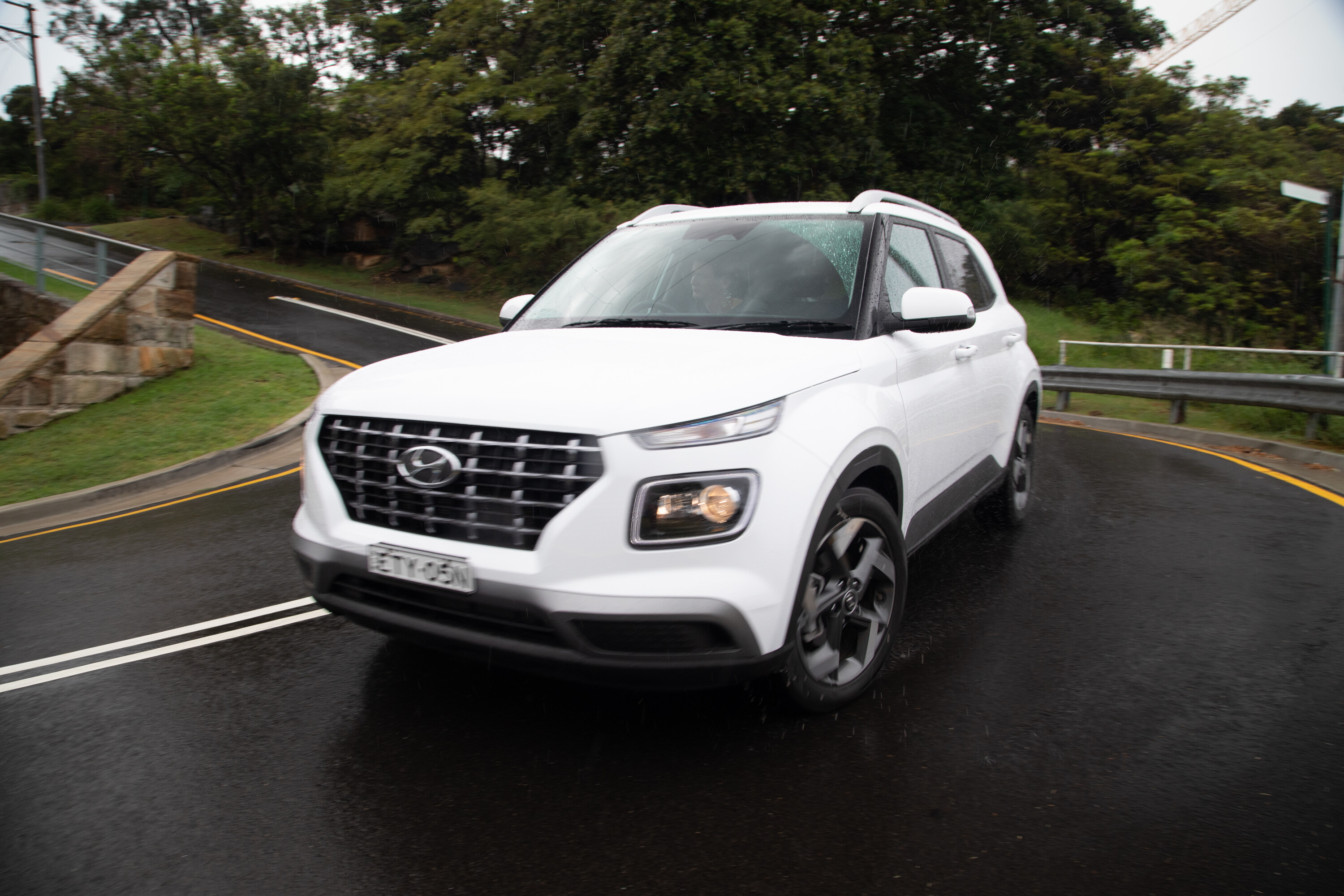
The engine feels amicably refined overall, though it can become a bit gruff under hard load. It does the job, however, and feels well-suited to the Venue’s price point and remit.
Its modest outputs are only really exposed when attempting a highway overtake, where it simply doesn’t have the muscle to deliver rapid in-gear acceleration at these speeds.
Around town, however, the linear, quick steering and agreeable roadholding from its 215/55 tyres make the Venue an entertaining thing to guide through corners. It doesn’t like being ‘pushed’ outright, however, but it channels its dynamics and weight transfer with predictability and good fundamental behaviour.
If any of the terms in this section have left you scratching your head, these articles will help bring you up to speed!
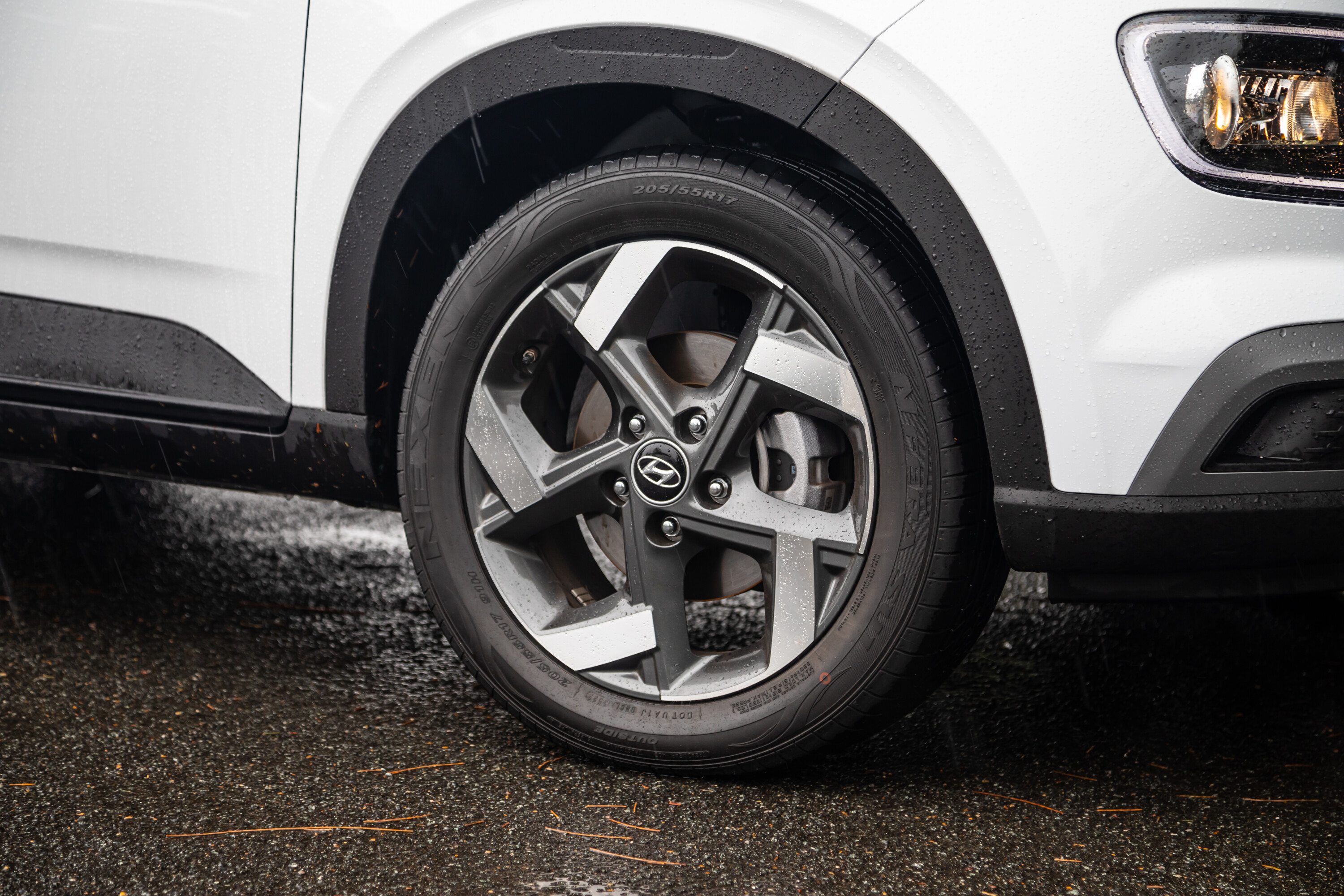
- What is a Powertrain or Drivetrain?
- Power vs torque
- Car suspension explained
- Automatic transmissions (‘gearboxes’) explained
- Chassis control systems explained
- Car vs Ute vs SUV: How the vehicle you buy should guide the way you drive
All Hyundai Venues employ the same engine, which accepts 91 RON regular petrol. Manual variants have an official combined-cycle consumption figure of 7.0 litres per 100km, while the automatics consume slightly more at 7.2L/100km.
Previous testing has seen real-world figures of 7.9L/100km.
What is the Hyundai Venue’s towing capacity?
The Hyundai Venue has a maximum braked towing capacity of 1100kg, with a tow ball rating of 50kg.
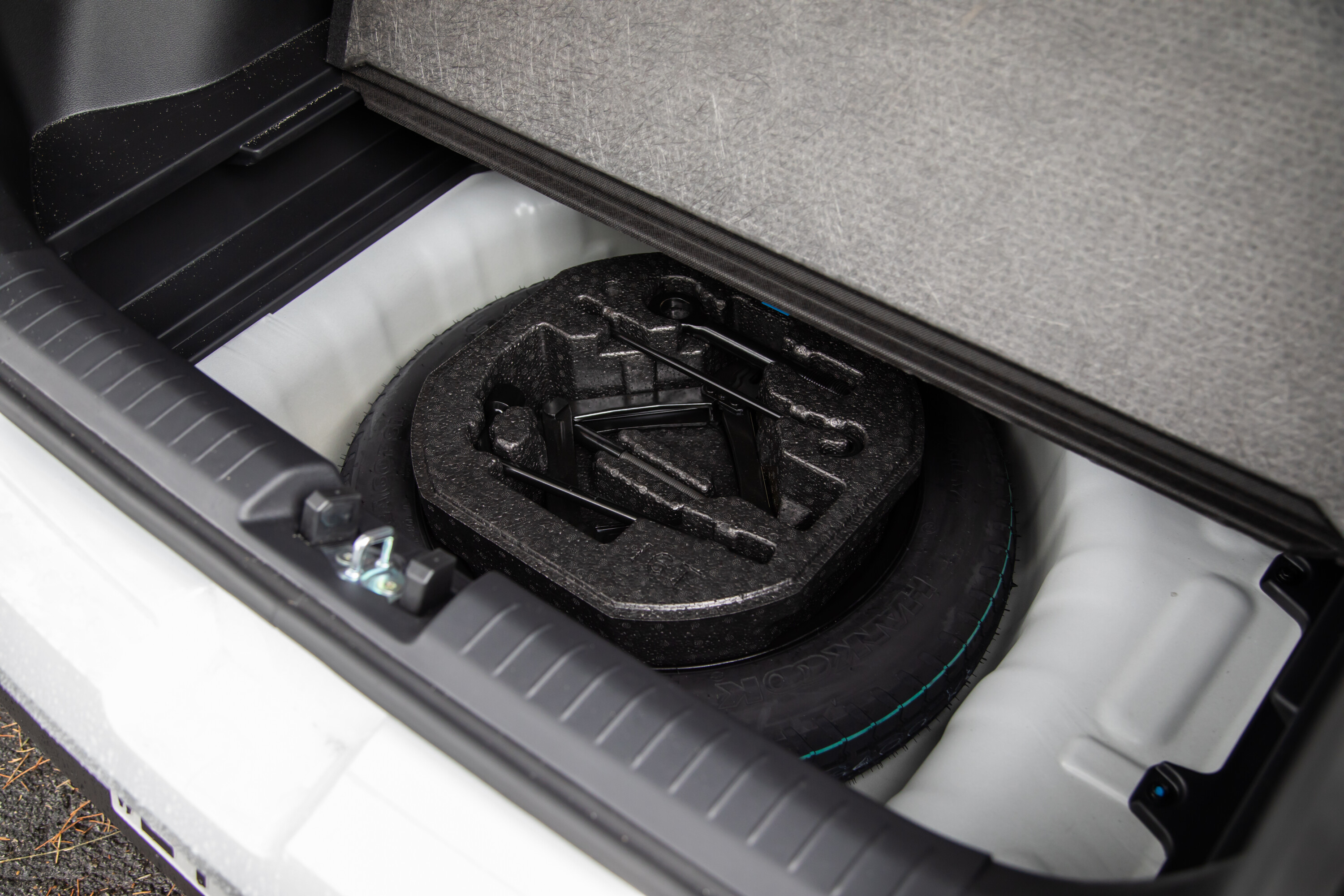
How long is the warranty and what are the Hyundai Venue’s servicing costs?
The Hyundai Venue is covered by Hyundai’s five-year/unlimited-kilometre warranty and servicing intervals run annually, or every 15,000km, whichever comes first.
Service pricing is capped for the first five visits, with costs quoted at $259, $259, $339, $459 and $259 respectively, with total expected servicing costs over the first five years adding up to $1575.
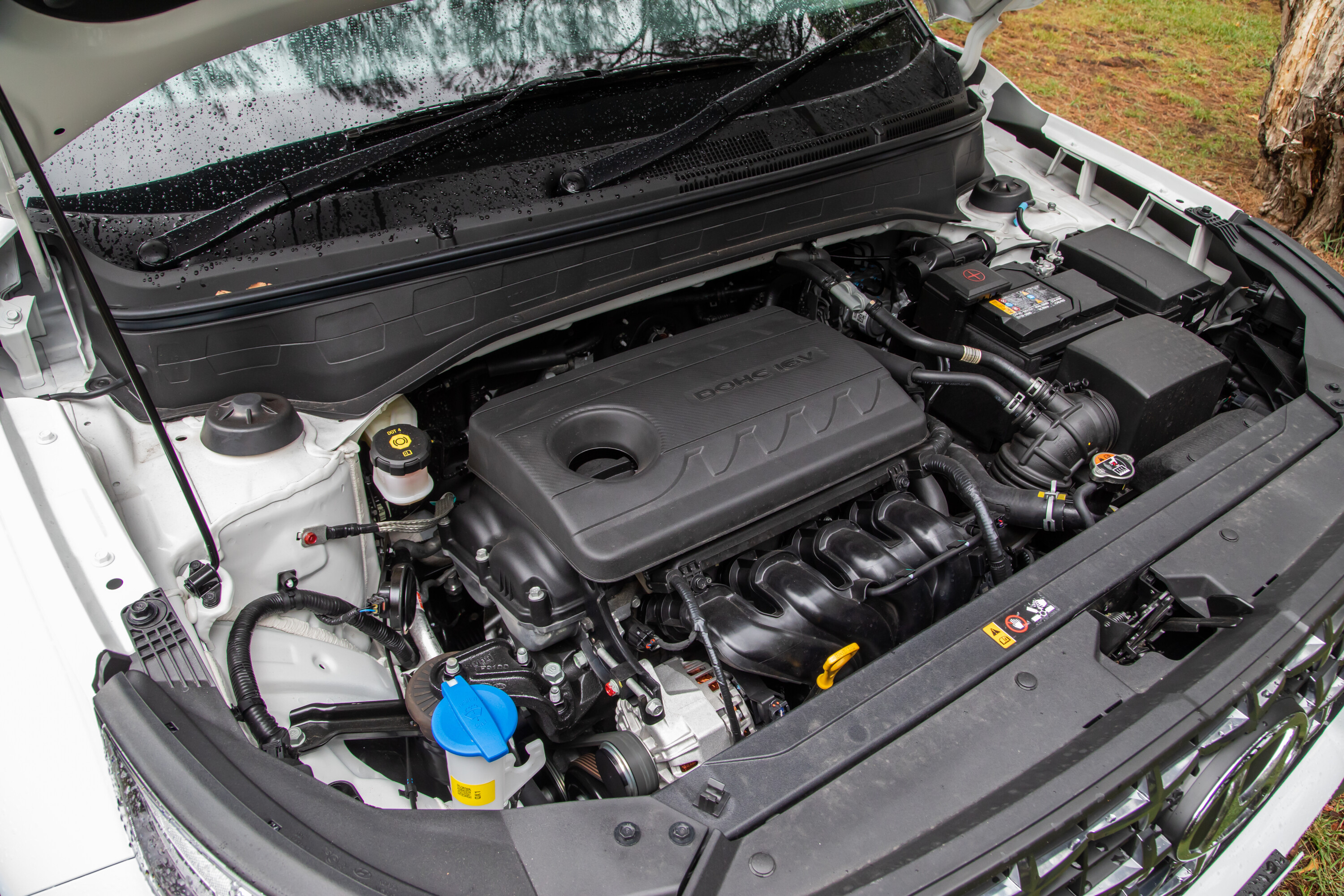
Which version of the Hyundai Venue does Wheels recommend?
As an affordability-oriented small city SUV, the Venue looks most attractive in its least-expensive trim levels.
It’s a fundamentally sound and capable little car, with the real differentiator between variance being the mix of standard features.
Still, the base Venue automatic seems to be a particularly sweet spot, at a neat $24,000 before on-road costs.
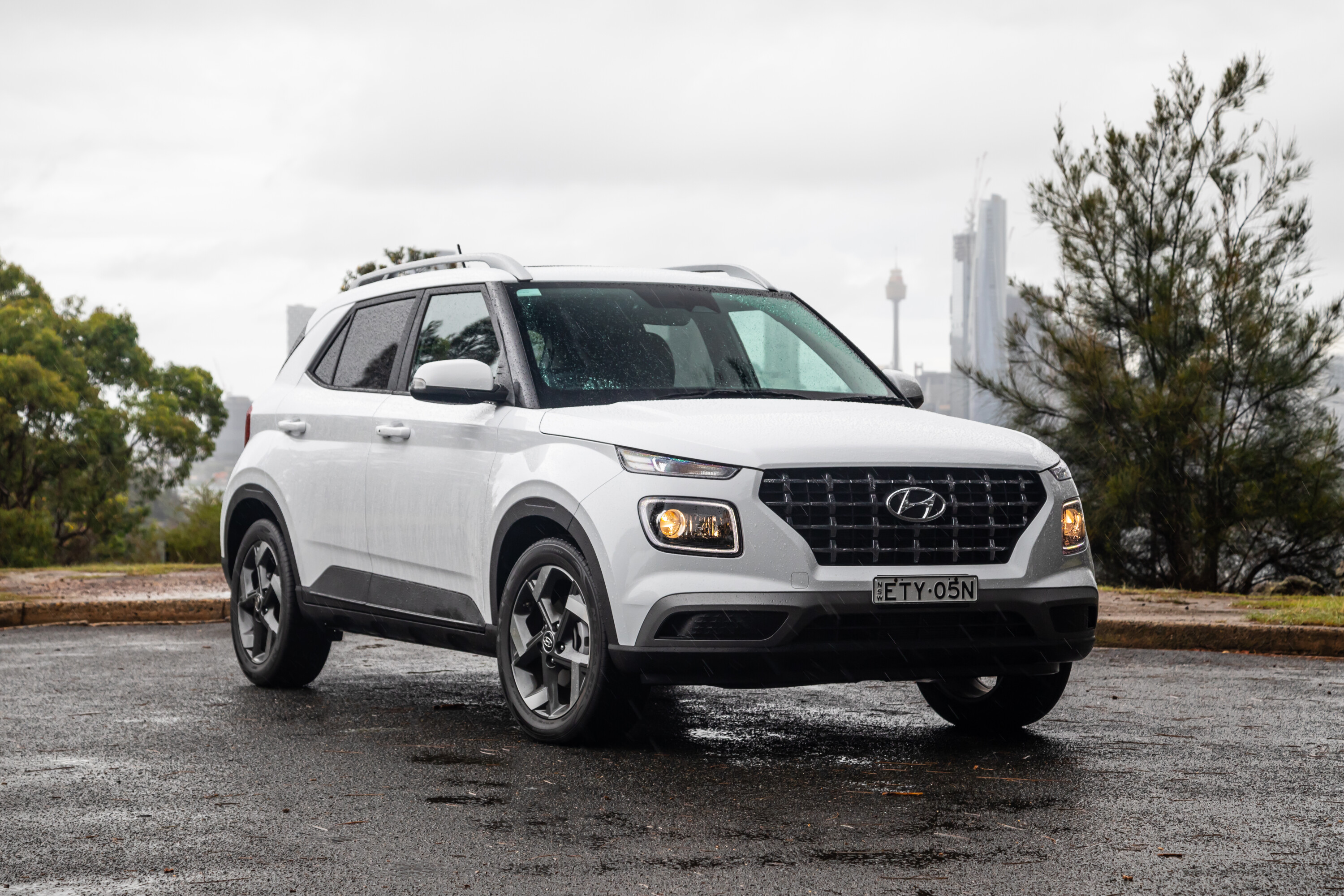
What are the Hyundai Venue’s key rivals?
ud83dudd3c Back to topScore breakdown
Things we like
- One of few SUVs to still offer a manual transmission
- 2023 adds range-wide Qi wireless charger and 4.2-inch instrument screen
- Value proposition hard to ignore
Not so much
- No exterior facelift for Aus
- Marginal price rises expected from July
- Featureless second row

